EDUCATION CANNOT WAIT INTERVIEWS THE LEGO FOUNDATION’S NEW CEO ANNE-BIRGITTE ALBRECTSEN
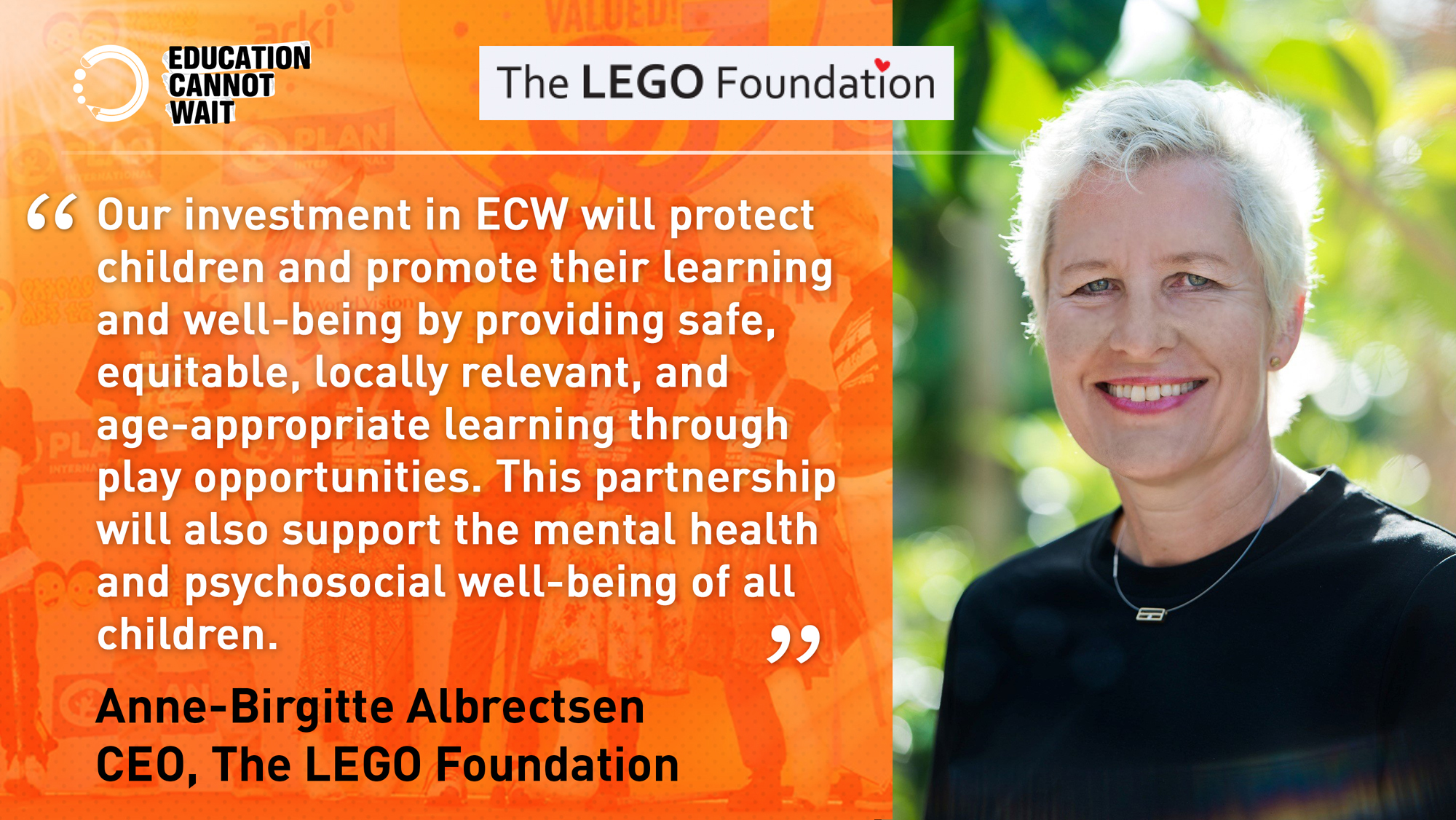
ECW’s largest private sector donor highlights the value of investing in early childhood programming and learning through play to achieve the Sustainable Development Goals
View Original
Anne-Birgitte Albrectsen is the CEO of The LEGO Foundation. Ms. Albrectsen has spent almost 30 years in fields of international development, human rights and diplomacy, most recently holding the position of Global CEO at Plan International since September 2015.
At Plan International, Ms. Albrectsen helped transform the organization by working together with children, young people, supporters and partners to deliver positive impact. Prior to Plan International, Ms. Albrectsen was United Nations Assistant Secretary General and Deputy Executive Director for Management at the United Nations Population Fund (UNFPA). She is also co-chair of the Board of the Global Partnership for Sustainable Development Data and a member of the United Nations Every Woman Every Child High Level Steering Group, the Generation Unlimited Global Board and she is the chair of the International Civil Society Centre Board.
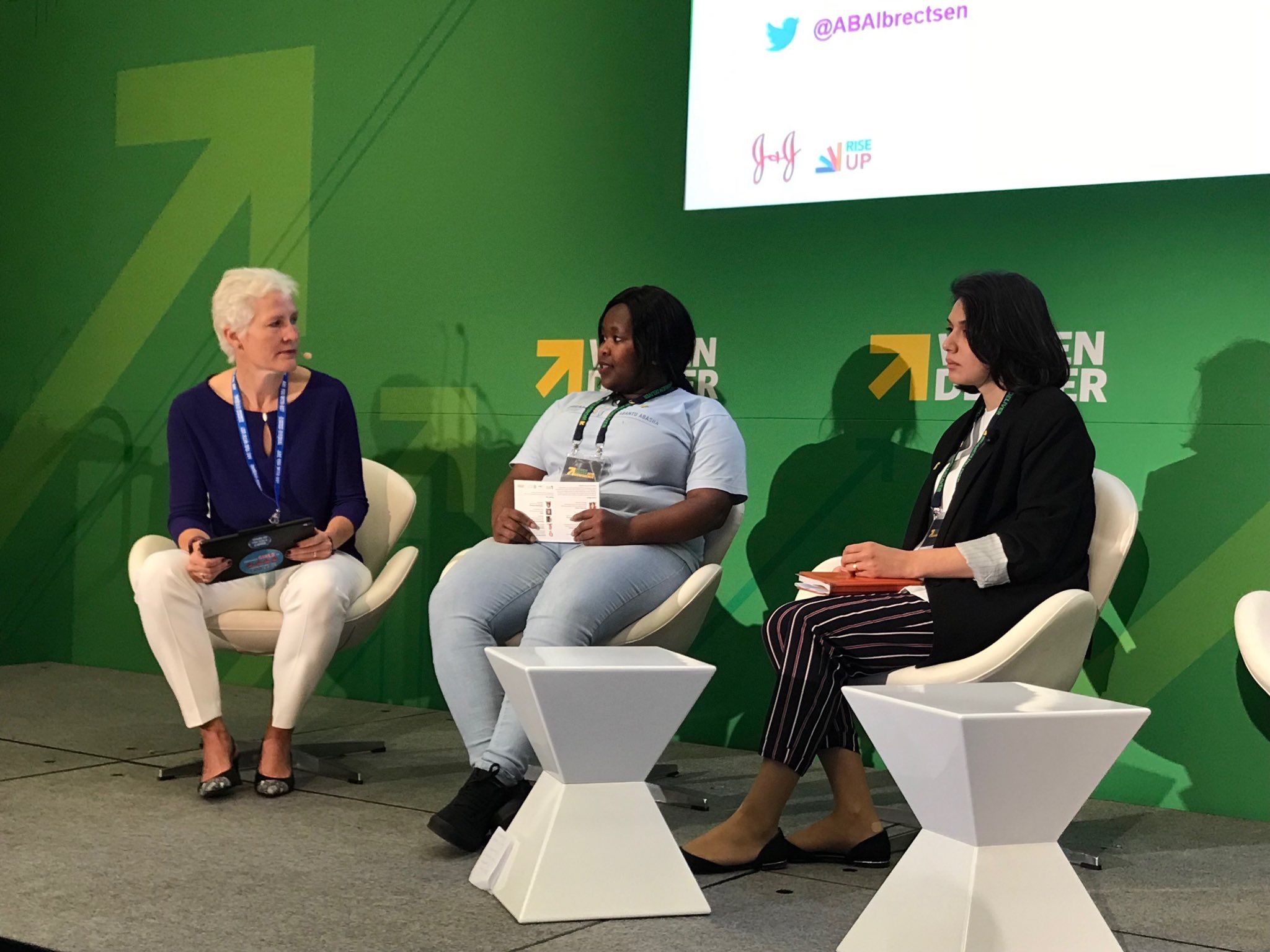
ECW: Congratulations on your new appointment as CEO of The LEGO Foundation, a strategic and valued partner of Education Cannot Wait (ECW). Could you outline for us your vision for The LEGO Foundation as we work together to achieve SDG4 through The LEGO Foundation’s focus on early childhood education and Learning Through Play, particularly for children and youth impacted by crises and emergencies?
Anne-Birgitte Albrectsen: Thank you, I am delighted to be heading up such an incredible organisation and it is wonderful to continue our longstanding partnership with Education Cannot Wait.
At The LEGO Foundation we promote the development of all children everywhere through playful learning, including children impacted by humanitarian crises and emergencies. We know that play reduces stress, builds resilience, while fostering imagination and hope. We are on a journey to transform the lives of at least 75 million children each year by 2032.
The COVID-19 pandemic has exasperated existing problems faced by children all over the world. Put simply, we are facing a child rights crisis. And it’s only through collaboration that we can achieve Sustainable Development Goal 4 to ensure inclusive, equitable, quality education for all children – even in these unprecedented times.
This is why we hope to continue working with our partners, to change systems, attitudes and norms standing in the way of all children reaching their full potential. Because when we team up, great things happen.
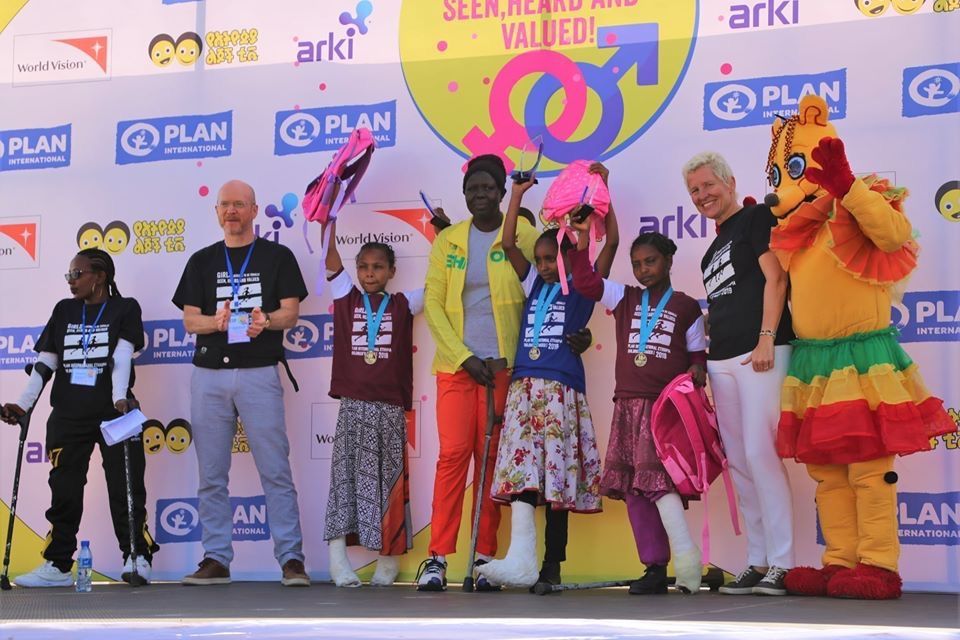
ECW: The LEGO Foundation is the leading philanthropic donor to ECW, working closely with us since 2019 to deliver inclusive quality education for crisis-affected children and youth. What message do you have to encourage other private sector donors to support our collective efforts for girls and boys impacted by armed conflicts, forced displacement, climate-change induced disasters and COVID-19?
Anne-Birgitte Albrectsen: Listen to the children. Children are our role models, we listen to them and so should others.
Education is a top priority for children affected by crisis. When we address learning loss caused by crisis, families and entire communities benefit. Education boosts growth and reduces inequality. It ultimately promotes sustainable development. We simply cannot afford not to invest in children affected by crisis.
As we navigate COVID-19 recovery, we are at a pivotal moment in time to transform where, what, and how we learn. We have seen super smart solutions to education access. Now we must revolutionise education quality. Access to quality education is key to addressing 21st century challenges, including accelerating the fight to end poverty and climate-change.
Working in coalition with other donors is crucial to reaching the most vulnerable and in need children - especially in crisis and emergency situations. This is why we call on the private sector, philanthropic organisations, governments, and others to act now and donate generously to the global efforts for children impacted by conflicts, crises, climate-change induced disasters and the COVID-19 response and recovery.
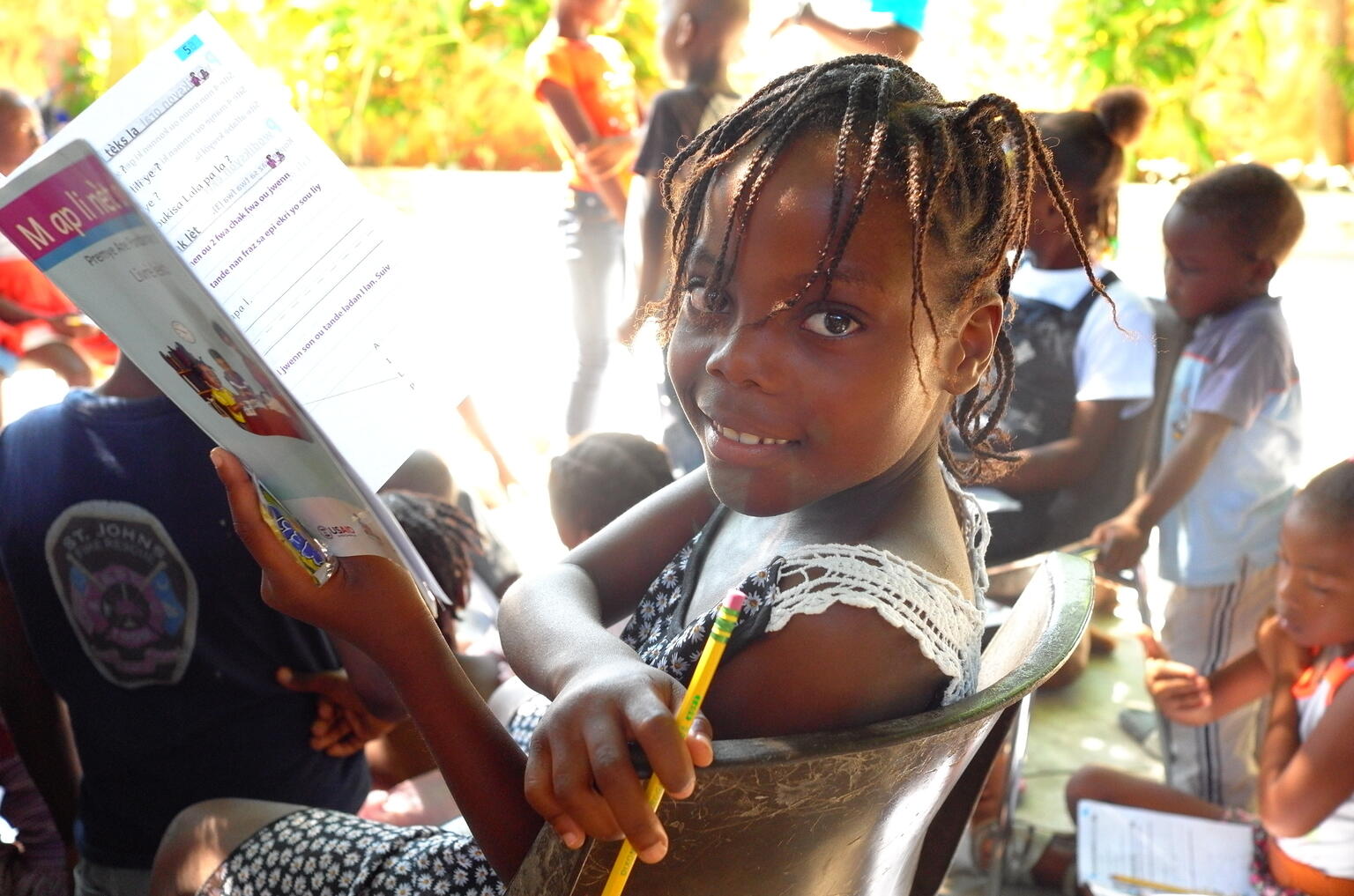
ECW: The LEGO Foundation generously provided ECW with US$5.6 million in September 2021 in support of ECW’s work in Afghanistan and Haiti, bringing The LEGO Foundation’s total contributions to ECW to $33 million. What returns on investment for girls and boys, and for The LEGO Foundation, are you hoping to see as a result of these contributions to the work in Afghanistan and Haiti?
Anne-Birgitte Albrectsen: We know that by partnering with ECW attention is focused on both the immediate and long-term impacts of crisis situations and that two key elements always in focus are access to and quality of education.
The LEGO Foundation believes deeply in the power of Learning Through Play for children affected by conflicts and crises, as is the current situation in Afghanistan and Haiti.
Research proves that play provides comfort, helps children to overcome traumatic experiences, builds resilience and allows a return to the routine and normalcy of being a child. Play can also relieve excess energy, provide emotional catharsis, and express emotions in a non-threatening way, encouraging children to respond to challenges with creative problem-solving.
Our investment in ECW will protect children and promote their learning and wellbeing by providing safe, equitable, locally relevant, and age-appropriate learning through play opportunities. This partnership will also support the mental health and psychosocial wellbeing of all children.
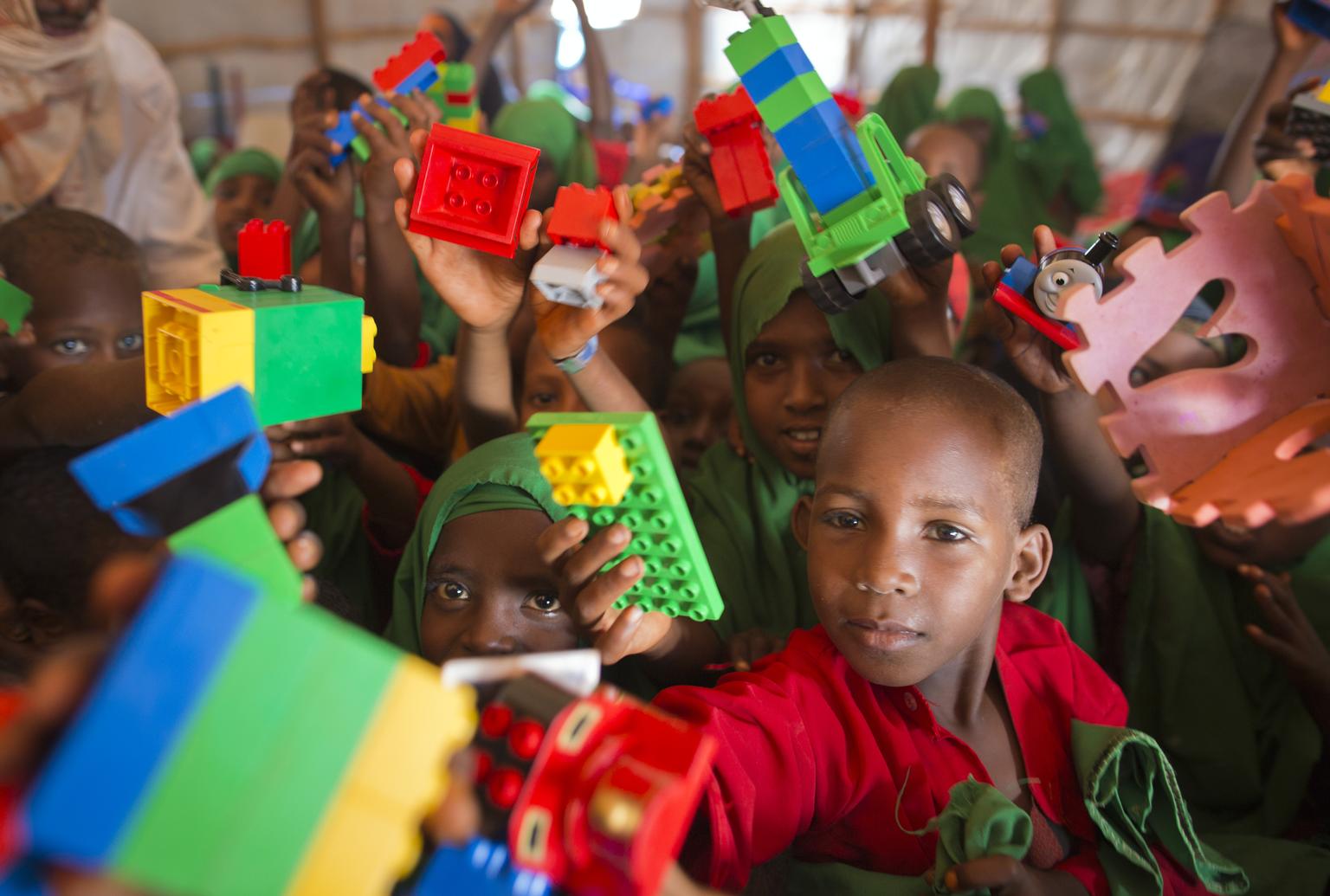
ECW: Play is often underestimated in learning, despite being the most natural way of acquiring essential life skills in early childhood. In emergencies and crisis this is further compounded by lack of resources and stress experienced by children and caregivers. By the end of 2020 ECW had allocated 11.5% of resources to early childhood interventions, exceeding the 10% target. What do you think should be done to raise the profile of the importance of early childhood programmes and learning through play in emergencies?
Anne-Birgitte Albrectsen: The investment in the early years of the child’s life is absolutely crucial because the early playful experiences will have benefits that last well beyond the early years. We know that children learn best through play. Play is the most natural way for children to learn to read, write and do math, while also developing physically, socially, and emotionally to think creatively, and to collaborate to solve problems. This becomes even more important for the youngest children in emergencies. Playful learning can help them overcome the stressors caused by traumatic experiences.
Significant, coordinated investment in access to Learning Through Play in the early years is urgently needed to make a greater difference in the lives of children who find themselves in humanitarian crises and emergency situations. But it isn’t all about money. It’s also about using the power of brands like ours to influence others to invest in children’s learning, the development of holistic skills, and working in partnership with like-minded organisations like ECW.
We need policymakers, key decision makers and international leaders to pay attention to the early learning crisis, lending their support and voices to prioritising early childhood programmes. Children are not the future. They are the present!
And together we must ensure the importance of early childhood programmes and Learning Through Play in emergencies is amplified onto the public agenda. It’s only with awareness of the problem that we can work together to transform the education in emergencies ecosystem for the better.
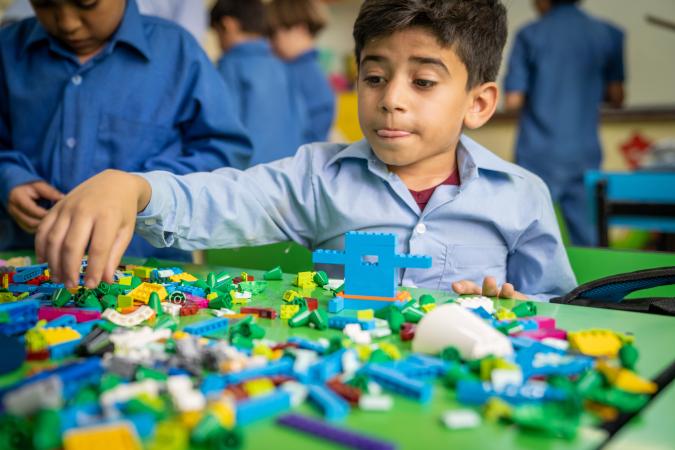
ECW: The COVID-19 pandemic has had a global impact on all areas of virtually everyone’s life, and in many countries affected by emergencies and crises, vaccinations are still out of grasp. How does The LEGO Foundation see the long-term effect of the pandemic on education, particularly for crisis-affected children and youth already impacted by armed conflicts, forced displacement and climate-induced disasters prior to COVID-19?
Anne-Birgitte Albrectsen: To put it very simply, the COVID-19 pandemic has made already dire situations worse. Overlapping crises of conflict, natural disaster and COVID-19 exacerbate the burdens that children face.
At the peak of the pandemic, 90 per cent of the world’s students were out of school – that’s 1.6 billion children. The impact of school closures and the subsequent learning loss is devastating for children. When children drop out of school, the impacts can last a lifetime. These children may not develop the skills they need to reach their true potential.
We do not yet know the full impact on children after they were deprived of the chance to develop socially and emotionally together. But we do know that the pandemic has widened existing inequalities and increased the insecurity of the most vulnerable, particularly those children impacted by crises and emergencies.
We may see the effects of the COVID-19 pandemic for years to come, but it is our joint responsibility to act now, stepping in as soon as possible to prevent further loss of quality education.
We have a unique and unprecedented opportunity to transform education systems, driving Learning Through Play to the forefront of the education agenda and equipping children with the skills they will need to navigate an ever-changing world.
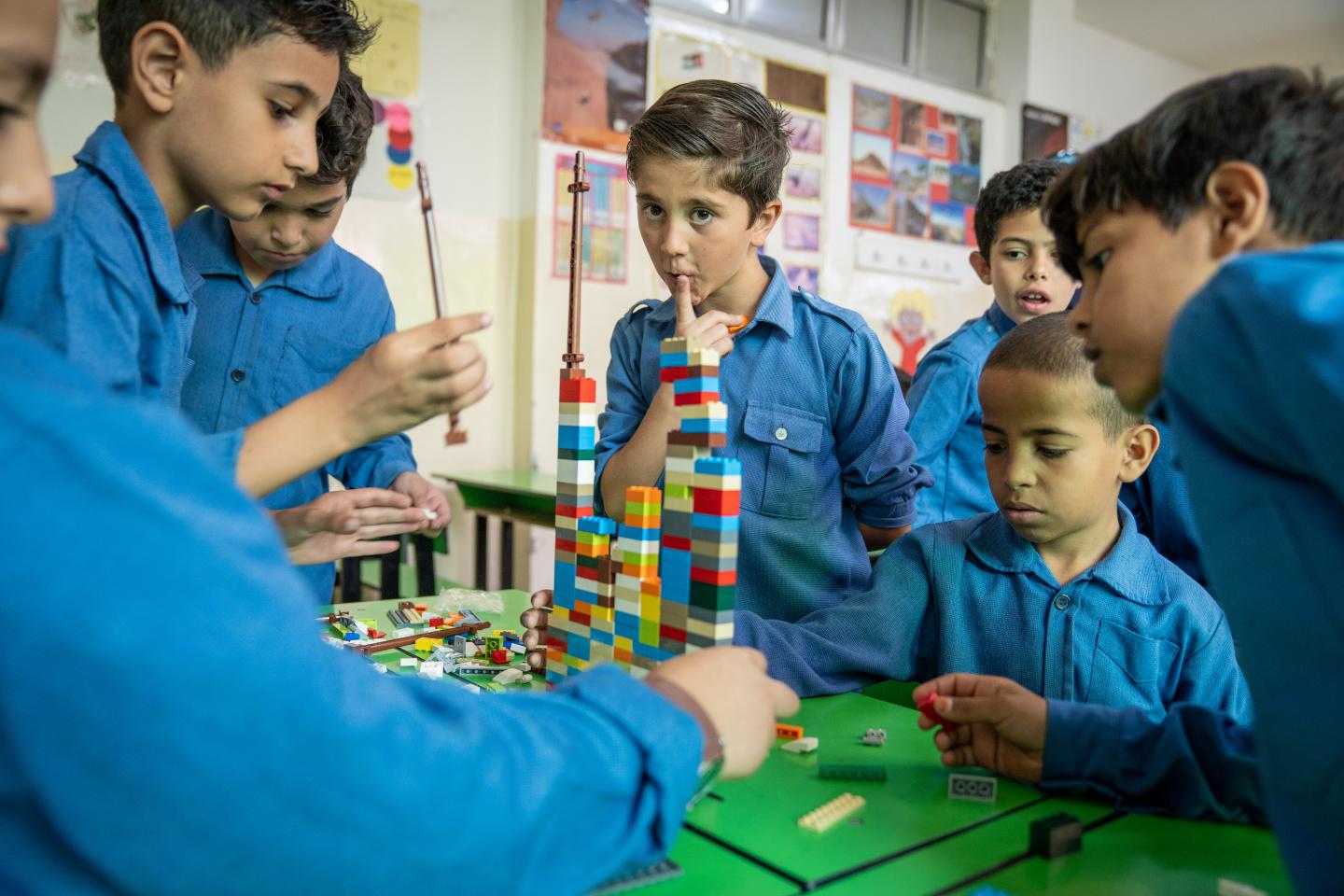
ECW: The LEGO Foundation continues to be an innovative leader in early childhood education and learning through play. What are the three most important achievements you feel have been made in this area as a result of The LEGO Foundation’s work and advocacy on the importance of early childhood education and learning through play in emergency and crisis settings, and what are the most pressing things still to be done?
Anne-Birgitte Albrectsen: Firstly, I hope we have helped raise and amplify the voices of children affected by crisis. Lifelong learning through play starts at birth and, can and should take place anywhere. No one should be left behind.
The second contribution is towards generating greater evidence on the importance of early childhood education and Learning Through Play in emergency and crisis settings. Education being an underfunded area also makes it difficult to push for more investment in early education, yet evidence shows that early learning sets children up for success. Our two large investments in promoting and supporting playful learning experiences for children in humanitarian settings are creating, testing, and scaling up new playful early learning interventions, and part of this work is also giving us more evidence on what works and why.
The third, and probably the most important for us, is the impact we have on the lives of children. We are excited about the increase in the number of children reached with Early Childhood Education (ECE) interventions and increase in overall investments in ECE through ECW. We understand that many more Multi-Year Resilience Programmes (MYRPs) developed by governments with support from ECW include ECE or pre-primary education. This is a very positive shift. We want to see how playful learning is used in these programmes and what this does for holistic learning outcomes for children.
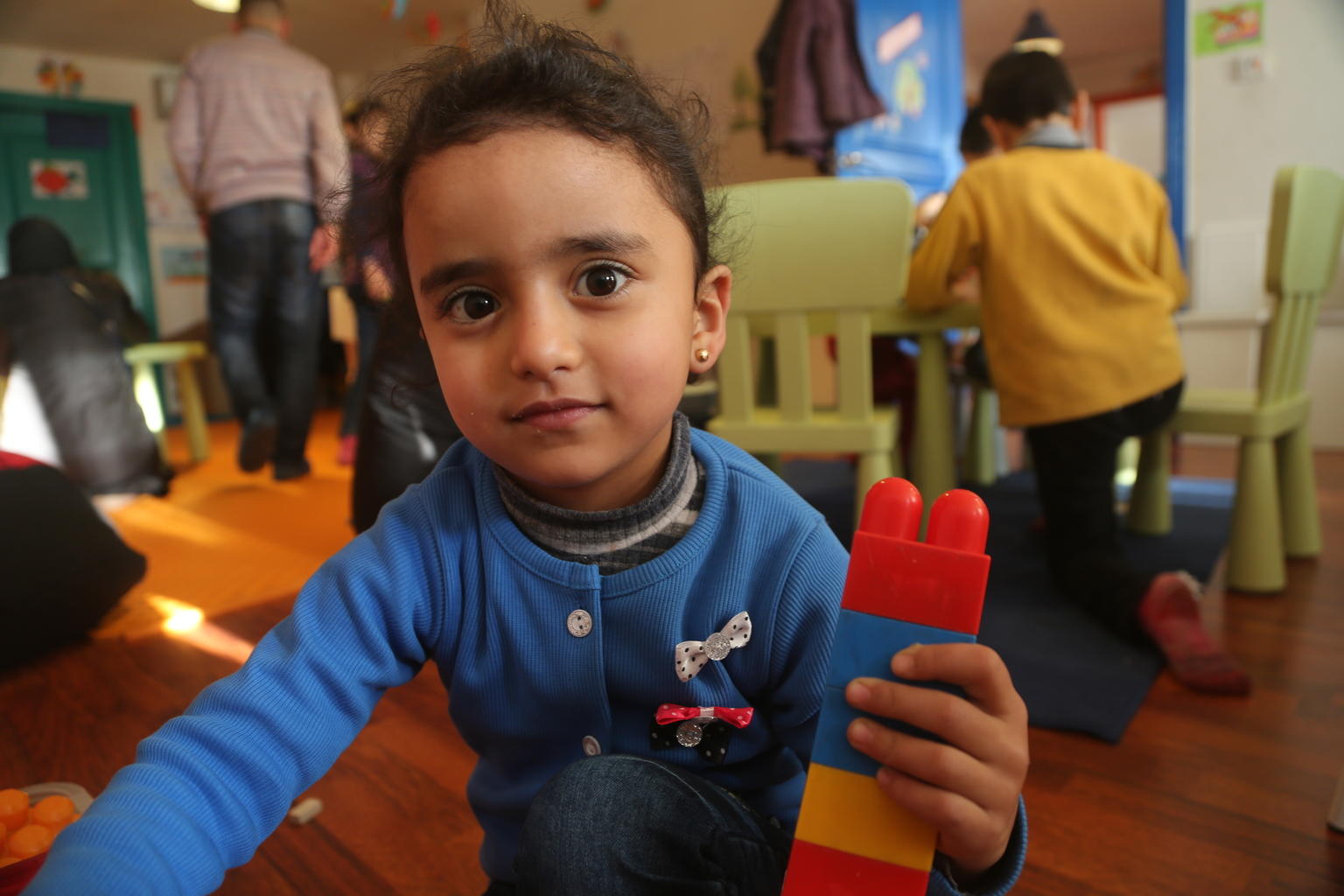
ECW: Our readers would like to get to know you a bit better on a personal level and reading is a key component of education. Could you please share with us two or three books that have influenced you the most personally and/or professionally, and why you’d recommend them to other people to read?
Anne-Birgitte Albrectsen: What a wonderful question: There are obviously great lessons for all of us in ‘Pippi Longstocking’ by Astrid Lindgren about children’s, especially girl’s, agency and ingenuity. More recent books which have shaped my thinking a lot include ‘New Power,’ by Jeremy Heimans and Henry Timms which helped inform my ideas about movements. I finally need to mention ‘We Should All Be Feminists’ by Chimamanda Ngozi Adichie about what it means to be a feminist, and how gender roles and norms are detrimental to both men and women.

No comments:
Post a Comment